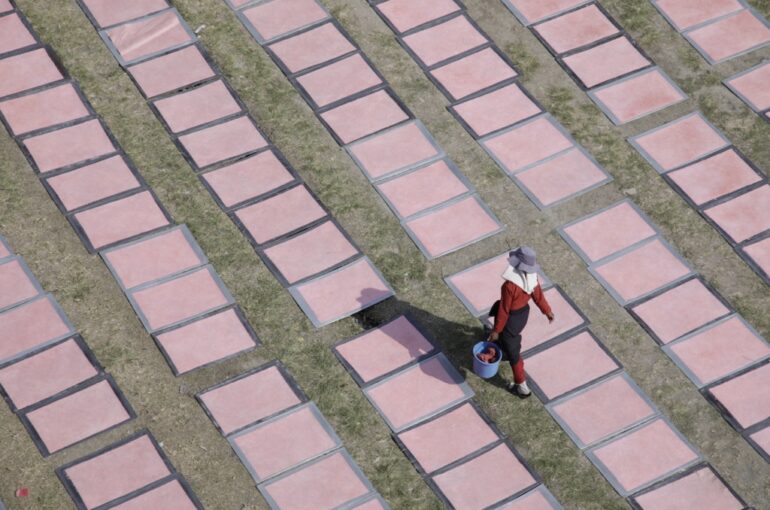Return to Sender – The power of fair products

We all know the brand Return to Sender, co-founded by Katja Schuurman in 2006. Over the last decade, this brand was able to create big impact: but the brand’s potential goes further. Now, Return to Sender is ready to launch its brand new collection of designer items and create impact with every single product. Since the start, the goal was to meet the increasing demand of sustainable and fair trade products. How? By stimulating fair entrepreneurship. To do this, the brand developed its own approach to it. The new collection represents the world of the makers, by sharing beautiful stories that bring this world to life. By bringing handcrafted design products to the Dutch market and support producers with sales and marketing, Return to Sender stimulates sustainable development and brings fair entrepreneurship to an even higher level.
Connecting maker & user
Return to Sender brings the makers and enjoyers of design together from all over the world. Return to Sender believes in the power of fair products, often made by strong, female craftsmen. Producing these handcrafted products enables fair entrepreneurship, sustainable development and promotes equal chances in the countries in which they are made.
By sharing the story of the maker, the consumer can relate and start feeling the love that is captured within the product they came across in the store. That is how design can truly amaze and move its end-users. From handwoven baskets made in Indonesia to colourful bracelets made of dried palm leaves in Mali.
By sharing the story of the maker, the consumer can relate and start feeling the love that is captured within the product.
What is fair entrepreneurship?
To understand this, it’s important to explain what fair entrepreneurship is, according to the brand. How is Return to Sender working on its long-term goal of stimulating and scaling fair entrepreneurship? To accelerate sustainable development, the brand uses its fair entrepreneurship model as a vehicle (see below). The model explains that:
- Fair entrepreneurship starts with creating fair jobs for the “makers”, with fair wages, fair working times and fair contracts, as is shown at the top of the fair entrepreneurship model. This also means helping the makers with market access, providing them with work and supporting them with marketing activities.
- Secondly, Return to Sender enables the “makers” to develop more skills on the job. This enables professional development in crafting the designer items and results in better quality and, therefore, better sales. The recent exchange between designers and makers (in Indonesia, Thailand, Nepal etc.), was meant to stimulate this skillset development and knowledge exchange.
- Together, this results in better returns, that flow from sales from quality. With these returns, the future “makers” can be provided with better education. These future makers are the children in the communities of the producers.
Return to Sender integrated these pillars within her business model and facilitates the working of this to create positive impact! The profits flow back to the producing communities, to educate and train the (future) makers. This reinforces the model’s effect.
Empowering & Returning to the sender
The designs create employment opportunities in the producing countries, enabling the makers to generate their own income and offer them independency and control. By committing profits to education, in association with PLAN Nederland, girls and young women are offered more professional opportunities. Up to today, Return to Sender already contributed to the creation of 5,000 jobs worldwide.
Different programmes in producing countries are designed to take this to an even higher level. That is how 22 girls in Kenya are currently enrolled in an internship programme of six months, to prepare them for and eventually find a job. This programme offers the future makers soft skills training and guidance in this whole process.
Return to Sender already contributed to the creation of 5,000 jobs worldwide.
The products are intended to be fair designs, inspired by local techniques and materials. To ensure sustainable quality and good relationships with its producers, Return to Sender asks them to do a fair entrepreneurship scan. “The fair entrepreneurship scan helps us to focus and monitor our long-term relationship with our makers”. The scan presents questions to the makers to measure and monitor fair entrepreneurship, based on the 3 focus areas from the model. By combining this scan with an impact measurement, the brand gets a complete overview of the impact of its production.
Creating tangible impact
Return to Sender is setting up strategic and long term partnerships with its producers, while avoiding dependency. This means that if the brand stops production at a supplier, the business will still continue and grow. The enterprise always explores the risk profiles of the countries in which it produces, and analyses the sustainability profiles, activities and ambitions. That is how the best, sustainable quality is guaranteed and monitored. Developing improvement plans together eventually brings their joint impact journey to a higher level.
We measure the impact we have made together per collection. This helps us to communicate back to our clients (and their customers).
Stimulating and growing fair entrepreneurship is of great value. Both for the local makers and the users in the Netherlands. The makers get the opportunity to practice fair jobs and develop themselves and the users can enjoy the handcrafted products and beautiful stories that result from this. One of the co-founders shares with us: “Don’t try to do everything yourself – make sure you know where you can make an impact…”. At Rainbow Collection, it is our responsibility to guide brands along that way. Together, we can make sure you create the biggest impact – by defining your focus to achieve your goals.
More impact stories, you will find on our Facebook or Instagram!
The Fair Entrepreneurship Model
